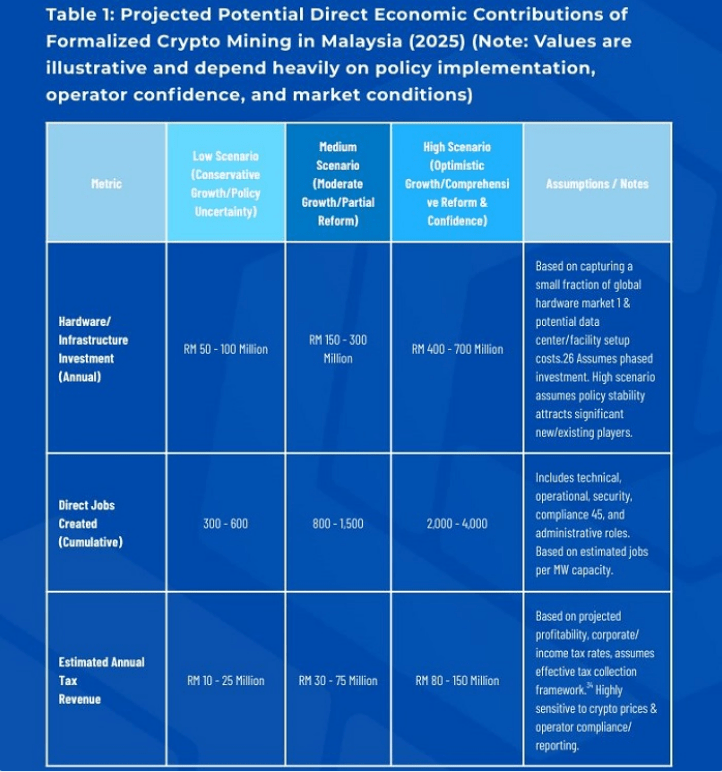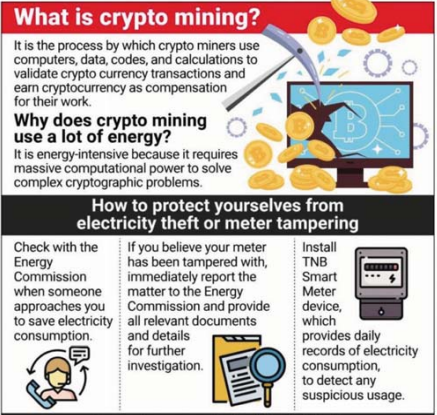Malaysia’s cryptocurrency mining sector stands at a pivotal crossroads. A recent study by the ACCESS Blockchain Association of Malaysia suggests a future filled with potential, but it also illuminates significant challenges, notably the rampant electricity theft by illegal miners. Between 2020 and 2024, these unauthorized operations are projected to siphon more than RM441 million from the nation’s power grid, equivalent to around $100 million. This not only hampers public safety but also undermines investor trust.
Malaysia Mining Faces Power Theft Crisis
According to Tenaga Nasional Berhad (TNB), the national utility provider, illegal mining operations are stealthily utilizing power from the grid without consent, leading to alarming losses. Over the past five years, TNB has reported power losses of RM441 million, directly tied to these unauthorized activities. As a result, grid instability is becoming more pronounced, risking local outages and causing anxiety among legitimate miners, who fear rising costs to cover the electrical shortfall.
Legal Mining Growth Could Bring RM700 Million
In contrast to the grim figures associated with illegal operations, there is a bright outlook for legal mining activities. Reports from ACCESS indicate that formalizing the crypto mining industry could unlock an impressive RM700 million in hardware and infrastructure investments this year alone. Moreover, this growth could pave the way for approximately 4,000 new jobs and increase annual tax revenues by around RM150 million.
Notably, Malaysia ranks among the world’s top ten nations in terms of bitcoin hash rate share, largely thanks to competitive industrial tariffs, especially in regions like East Sarawak. However, many legitimate miners remain apprehensive about operating openly due to ambiguous regulations and sudden policy changes.

Source: ACCESS Blockchain Association
Regulators Urged To Act
The current landscape is marked by regulatory uncertainty, as no specific agency is tasked with licensing mining operations. The Securities Commission oversees asset trading and custody but does not provide clear guidance for miners. This lack of dedicated permits and clarity in electricity tariffs poses significant barriers to investment. Miners find themselves in a confusing milieu where environmental regulations are also undefined.
Such uncertainty acts as a deterrent for potential investors seeking stability in an already volatile sector. ACCESS is advocating for a clear mining license framework, fair energy pricing, and well-defined environmental checks to foster a more reliable investment environment.
The issue of illegal mining is not unique to Malaysia. Neighboring Thailand and Indonesia have reported a staggering increase in illegal mining activities—nearly 300% between 2018 and 2024, leading to close to 2,400 reported incidents. This trend underscores a regional challenge that Malaysia must address to maintain its credibility in the burgeoning digital asset landscape.

Source: TNB
In response to the alarming trend of power theft, TNB has begun implementing smart meters and leveraging data analytics to detect theft early. However, enforcement remains inconsistent. The responsibility for addressing these unauthorized operations is spread across multiple government bodies, resulting in gaps that allow illegal miners to persist.
ACCESS has proposed revisions to landlord liability laws to ensure that building owners actively monitor and report unauthorized rigs in their premises. Furthermore, they recommend connecting energy pricing to sustainable practices, encouraging miners to shift towards greener energy sources.
Featured image from LinkedIn, chart from TradingView

Editorial Process for bitcoinist is centered on delivering thoroughly researched, accurate, and unbiased content. We uphold strict sourcing standards, and each page undergoes diligent review by our team of top technology experts and seasoned editors. This process ensures the integrity, relevance, and value of our content for our readers.



